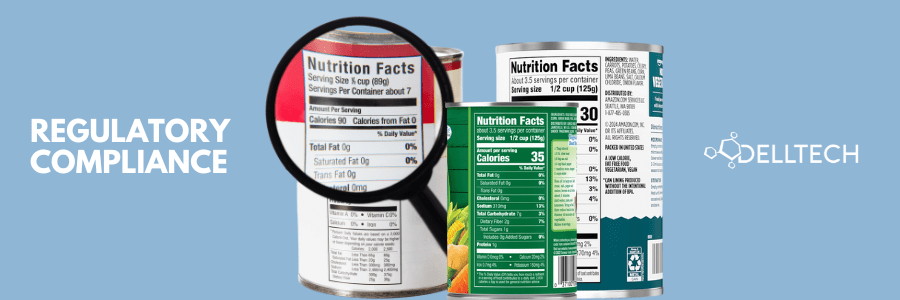By: Kirsten Alcock, Manager of Product Safety, email
Technical translation is the transcription of scientific text from one language to another with close attention paid to both specialized technical terminology and regulatory compliance rules. Dell Tech’s experts successfully prepare accurate technical translations which are available in multiple languages. Technical translations can include Safety Data Sheets (SDSs), Material Safety Data Sheets (MSDs) and Labels.
One thing to note with translations however is that simply translating a document from English to Canadian French does not mean that the document is compliant for Canada. Translating a US Safety Data Sheet (SDS) for example into Canadian French does not mean that the SDS itself is compliant. Canadian SDS have their own nuances and compliance lists that are required on an SDS. We provided a webinar on this in the past. Please watch our video for further details.
Below are some examples of these issues which we discuss in the video:
- Occupational exposure limits set out by the individual Provinces.
- Mention of the Domestic Substance List (DSL)/Non-Domestic Substance List (NDSL)
- Transportation of Dangerous Goods (TDG)
- HHNOCs and PHNOCs
- Currently, Canada requires Version 5 statements from the Globally Harmonized System (GHS). The US is currently on version 3 statements.
- Canadian label law requires that all labels must be translated into Canadian French to be sold Canada wide.
- Canadian consumer labels must use the prescribed French translations as per the CCCR 2001 so Dell Tech would know NOT to translate the CCCR mandated phrases.
- Canadian French differs from Parisian French and therefore only translators who have had proper Canadian French training in our requirements are utilized at Dell Tech.
- If you have a compliant Version 5 SDS created internally, you will require a Canadian French translated version.
- All SDSs for hazardous workplace products sold within Canada must be provided in English and French AT THE SAME TIME – this is the law.
Direct translation may seem like the easiest route to go but is not always the best route to go to ensure proper compliance with the country you are looking to sell into. If you are missing any of these aforementioned requirements within your current SDS and are looking to sell your product to Canada, we can author an appropriate SDS in the required languages set out in the Hazardous Products Regulations. In some cases, it can actually be more economical for Dell Tech to author the SDS from scratch rather than have a 20 page SDS translated.
Simply translating a consumer CPSC label from English to Canadian French will NOT be compliant for Canada. Ask us for more guidance on this. We are happy to provide further clarification. We also have a great a great video to help you with the different requirements between our countries.
HOW DELL TECH CAN HELP:
- Offer specialized technical writing necessary to translate scientific and technological information.
- Technical consumer/retail label translations
- SDS (MSDS) Translations
- High level of subject knowledge required for technical translations.
- Utilize Canadian French translators.
- Provide a Canadian compliant SDS in the required languages with technical translation.
Please feel free to contact us for further information on our translation services and how we can help keep your SDSs and labels in compliance.
Contact:
Dell Tech
Kirsten Alcock, B.Sc. (Hons)
Manager, Product Safety Group
519-858-5074
kirsten@delltech.com
Dell Tech has provided professional, confidential consulting services to the chemical specialty
industry in Canada, the USA, Europe, and Asia for the last 40 years.
Contact us today for more information.
www.delltech.com




